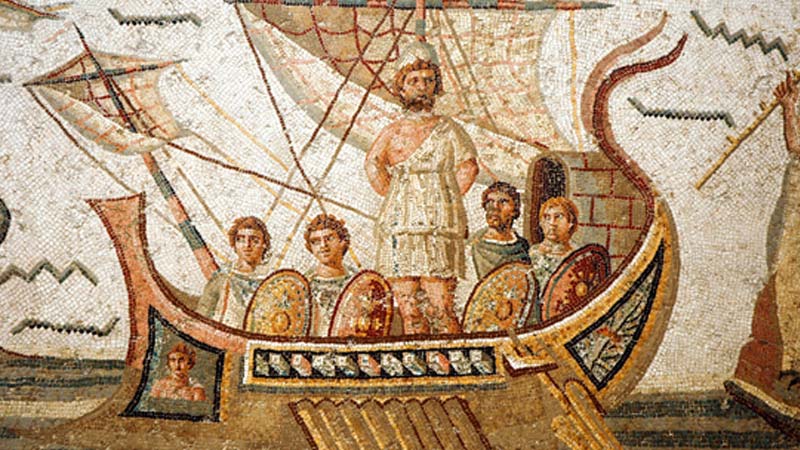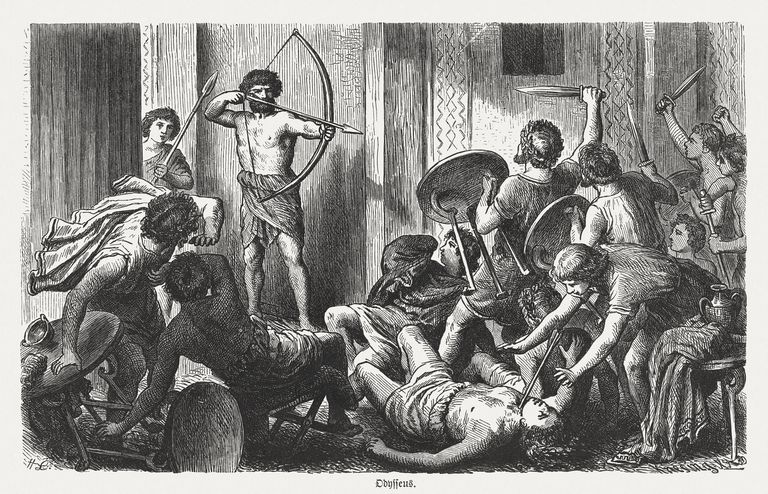Modern day interactions with Odysseus
The novel features Les Boom, a young man of the WWII generation. As a hormone driven teenager, Les fathers a bi-racial child with Lou, a colored woman near his age. Their son Teddy takes his name from Telemachus, child of Odysseus.
During the marriage of Les and Penny, the KKK murdered Lou as it fire-bombed her home. Their son Teddy escapes. It was his innocent/mischievous kiss of a white girl, Hazel, that sparked the raid. The girl evokes Circe, the witch/enchantress who detained Odysseus for one year. As the story unfolds, readers will see that Teddy, in some sense, comes to write Pistol Thicket, as Stephen Dedalus leaves from the pages of A Portrait of the Artist as a Young Man to write Ulysses.
Les takes revenge on the Klansman (the Cyclops of the story) who is responsible for Lou’s death, but he is soon convicted and sentenced to Angola. In prison, he enters a nightmare sequence that links him even more closely to Joyce’s Ulysses, but good fortune strikes. Les is pardoned by Governor Long: “This ain’t Mississippi. You got to
have evidence to convict a white man of murder.” Les returns to Pistol with not all of life’s lessons learned. He is only serially Monogamous, scarcely introspective, and, in his brief lifetime, impervious to self-doubt.
A fatal car crash brings this story to a close, and in a nanosecond of remembrance — in his purgatory — Les is confronted with his myriad sins.


Kirkus Review "thrilling""not one for half measure""unique"
A novel that recasts, in 20th century Louisiana, not only Homer’s Odyssey but James Joyce’s Ulysses. Shaw is certainly not one for half measures. His protagonist and narrator is Les Boom (a clear reference to Ulysses’ Leopold Bloom) who was born in 1924.
Les serves in World War II, and is seriously wounded at Bastogne — the Battle of the Bulge. Before the war, he’d sired a biracial child named Teddy (a reference to Odysseus’ son Telemachus) with a
teenage African-American girl, Lou. Les returns to Pistol Thicket a war hero and marries Molly (another Ulysses name-check), but the marriage ends badly. A second marriage to Penelope , though, is a success.
The crux of the plot—and of Les’ life—comes when Michael Cusack, a Klansman, firebombs the home of Lou because Teddy had been seen kissing Hazel, a white girl. Teddy escapes, but Les takes revenge for Lou’s death. Soon, he’s sentenced to Angola, the notorious Louisiana prison. Months later, however, Governor Long pardons him.
Les resumes life in Pistol Thicket, but the intrigue does not diminish. Shaw’s eighty endnotes meticulously draw connections between events and characters in the Odyssey and in Ulysses with own novel. Quite a story from an interesting story teller.
